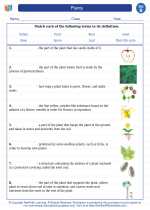Brain Study Guide
What is the Brain?
The brain is the control center of the nervous system in humans and many other animals. It is responsible for processing information from the senses, controlling movements, and carrying out higher mental functions such as thinking, learning, and memory.
Parts of the Brain
The brain is divided into three main parts: the cerebrum, the cerebellum, and the brainstem.
Cerebrum
The cerebrum is the largest part of the brain and is divided into two hemispheres. It is responsible for functions such as reasoning, problem solving, and processing sensory information.
Cerebellum
The cerebellum is located at the back of the brain and is responsible for coordinating movement and balance.
Brainstem
The brainstem connects the brain to the spinal cord and is responsible for controlling basic life functions such as breathing, heart rate, and digestion.
Functions of the Brain
The brain performs a wide range of functions, including:
- Processing sensory information from the environment
- Controlling voluntary and involuntary movements
- Regulating bodily functions such as heart rate and breathing
- Storing and retrieving memories
- Thinking, reasoning, and problem solving
Brain Health
It is important to take care of the brain by maintaining a healthy lifestyle, getting regular exercise, eating a balanced diet, and engaging in activities that stimulate the brain such as reading, puzzles, and learning new skills.
Interesting Facts about the Brain
- The human brain is about 3 pounds in weight.
- The brain is made up of about 75% water.
- The brain is the most complex organ in the human body, containing billions of nerve cells called neurons.
◂Science Worksheets and Study Guides Second Grade. Plants

 Activity Lesson
Activity Lesson
 Activity Lesson
Activity Lesson
 Worksheet/Answer key
Worksheet/Answer key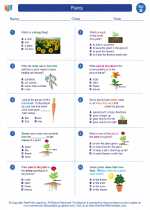
 Worksheet/Answer key
Worksheet/Answer key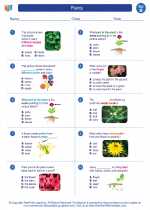
 Worksheet/Answer key
Worksheet/Answer key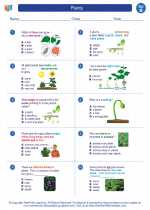
 Worksheet/Answer key
Worksheet/Answer key
 Vocabulary/Answer key
Vocabulary/Answer key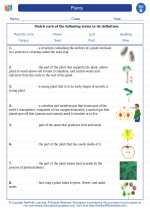
 Vocabulary/Answer key
Vocabulary/Answer key